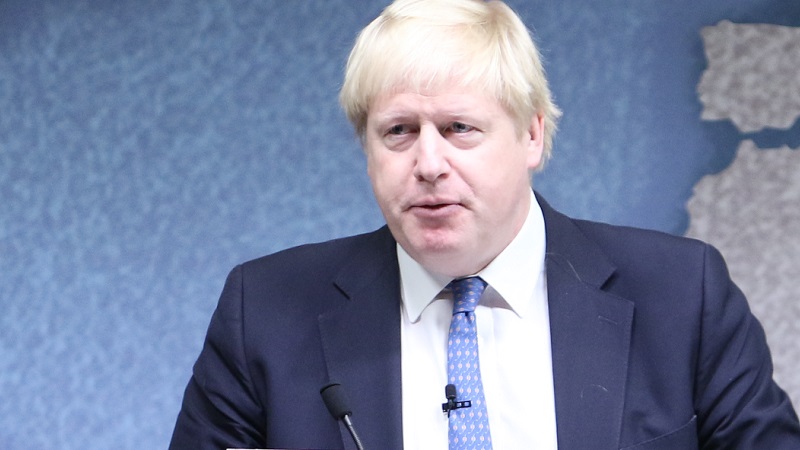Shortly after the Labour Party unveiled its manifesto for the UK general election taking place on 12 December 2019, the Tory Party has followed suit.
But some claimed it missed the mark, with Nimesh Shah, partner at tax advisory firm Blick Rothenberg, saying: “It would appear that the Conservatives have been very prudent in their policies when compared to their rivals, opting for a more cautious strategy.”
Between critiques of Labour’s plans, and statements of what the Tory government has already done, little was left in the 59-page document for any radical or game-changing initiatives.
Retirement fixes
On the pension side of things, the Conservatives have pledged to get rid of anomalies in the tax relief system hitting low-paid workers.
For high-paid workers, the Tories have mainly focussed on senior doctors working for the National Health Service (NHS) who have faced “large and unpredictable” tax penalties thanks to the tapered annual allowance, which is reduced for individuals earning more than £110,000 ($141,647, €128,641) in a year.
But Steve Webb, director of policy at Royal London, argues that senior doctors are not the only ones being hit by this measure, and that maybe a more drastic stance should have been taken by the ruling party.
“It is welcome that the Conservative manifesto refers to two of the various anomalies in the pension tax relief system.
“But on the tapered annual allowance, the measure proposed is far too narrow and may not even work.
“The tapered annual allowance affects far more people than senior NHS clinicians and creates complexity and uncertainty in the tax system.
“The best solution would be to abolish it outright.”
A self-made issue?
The tapered allowance was a measure introduced by the Conservative government and prime minister Boris Johnson seems unwilling to completely scrap the problematic policy.
Jon Greer, head of retirement policy at Quilter, said: “The ‘taper problem’, as the Conservative manifesto calls it, was introduced by the Conservative government, albeit by George Osborne.
“The ill-conceived policy has had a disastrous impact on the NHS and has the capacity to bring several public services to a grinding halt.
“Many doctors, and other public sector workers, have faced tax penalties for breaching the annual allowance because of the way their pensions are accrued.
“Despite this, Boris Johnson’s Tory party appears to refuse to accept that the taper is not fit for purpose and should be scrapped, instead choosing to look for short-term bespoke fixes for the NHS.
“The manifesto pledge sounds the same, as the Tories commit to work with medical bodies to find a fix.
“A far simpler response would be to scrap the taper altogether, although this maybe something the Treasury is reticent to do.”
Keeping it safe
In tax matters, the Conservatives have promised a ‘triple tax lock’, stating that they are not going to increase income tax, national insurance and VAT for the next five years.
“Part of the funding will come from their continued campaign against tax avoidance and evasion measures, which they expect to add to £200m to government revenue by 2023-2024,” said Rachael Griffin, tax and financial planning expert at Quilter.
She said it was surprising that the Tories did not include any measures on IHT.
“The Conservatives have made the odd decision to dodge inheritance tax, despite a recent wholesale review by the [Office for Tax Simplification (OTS)],” she added.
“Perhaps in the sentiment that they couldn’t make any giveaways and the prospect of reducing the allowances would be very unsavoury when every vote counts.
“However, this is not an issue to be ignored as the complexity of inheritance tax means it’s in the minds of the public.”
Pension and property measures
The manifesto also said the Conservatives are going to keep the pensions ‘triple lock’ – where state pensions rise by the higher of inflation, average earnings or 2.5%.
Quilter’s Greer added: “With earnings forecast to exceed 2.5% and inflation over the foreseeable future, keeping the triple lock won’t cost much – or possibly anything – over this term.
“But at some point, government is going to have to make a decision on the triple lock otherwise it will grow faster than either inflation or average earnings of the long term.”
Things, however, will change for non-UK residents buying property in the country.
“On property taxation, another pre-announced proposal to introduce a 3% [Stamp Duty Land Tax (SDLT)] surcharge on non-UK residents purchasing UK residential property is the only policy of note,” said Blick Rothenberg’s Shah.
“Foreign buyers would face an SDLT charge of up to 18% when purchasing UK residential property, but the rate for commercial property remains unchanged; the top rate applying to commercial property is 5%.
“The foreign-buyer SDLT surcharge is estimated to raise £120m. The policy is unlikely to be an overall vote winner, but it creates yet another factor in the already cluttered SDLT system.”










